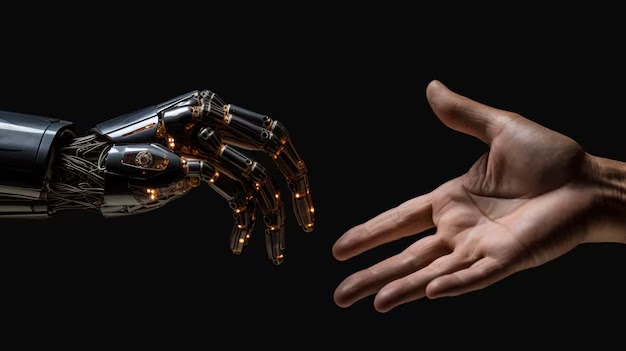The Impact of Artificial Intelligence on the Job Market
As artificial intelligence (AI) continues to advance, its influence on the job market becomes increasingly significant. From automating repetitive tasks to enhancing decision-making processes, AI is reshaping the way we work across various industries. While this technological revolution brings about numerous benefits, it also raises concerns about job displacement and the need for workforce adaptation. Let’s explore the multifaceted impact of AI on the job market.
1. Job Automation and Displacement
One of the most immediate effects of AI is the automation of tasks previously performed by humans. Jobs that involve repetitive, predictable tasks—such as data entry, manufacturing assembly lines, and even some customer service roles—are particularly vulnerable. According to a McKinsey report, about 60% of all occupations could have at least 30% of their activities automated by existing technologies.
While automation can lead to increased efficiency and cost savings for businesses, it can also result in job displacement for workers in affected roles. The challenge lies in finding ways to transition these workers into new positions that leverage their skills in more complex tasks.
2. Creation of New Jobs
While AI may eliminate some jobs, it also has the potential to create new ones. As companies adopt AI technologies, they will require skilled workers to design, maintain, and improve these systems. Fields such as data science, AI ethics, and machine learning engineering are emerging as crucial areas for employment.
Moreover, AI can enhance existing jobs by automating mundane tasks, allowing employees to focus on higher-value activities. For example, AI tools can assist healthcare professionals in diagnosing diseases, enabling them to spend more time on patient care.
3. Changing Skill Requirements
The rise of AI is transforming the skill sets needed in the workforce. As automation takes over routine tasks, there is a growing demand for skills that machines cannot easily replicate, such as creativity, emotional intelligence, and critical thinking.
Workers will need to adapt by acquiring new skills through reskilling and upskilling initiatives. Lifelong learning is becoming essential, with both employees and employers recognizing the need for continuous education to stay relevant in a rapidly evolving job market.
4. Sector-Specific Impacts
Different industries are experiencing varying levels of AI integration and its effects.
Manufacturing: Robotics and AI-driven systems are streamlining production processes, leading to increased efficiency but also requiring workers to learn how to operate and maintain these advanced technologies.
Healthcare: AI is revolutionizing diagnostics and treatment plans, creating opportunities for healthcare professionals to use data-driven insights to enhance patient outcomes.
Finance: AI algorithms are automating risk assessments and fraud detection, transforming roles in financial analysis while creating demand for data analysts and compliance experts.
Retail: AI-powered chatbots and recommendation systems are changing the customer experience, requiring retail workers to adapt to new tools and focus on personalized service.
5. Ethical and Social Considerations
The integration of AI into the job market raises ethical questions regarding fairness, accountability, and the potential for bias in automated systems. Ensuring that AI technologies are developed and implemented responsibly is crucial to avoiding negative impacts on employment and society as a whole.
Furthermore, there is a risk that the benefits of AI could exacerbate income inequality if high-skilled workers thrive while low-skilled workers face displacement. Policymakers, businesses, and educational institutions must work together to create an inclusive environment where everyone can benefit from AI advancements.
Conclusion
The impact of artificial intelligence on the job market is profound and complex. While AI presents challenges, such as job displacement and shifting skill requirements, it also offers opportunities for innovation and the creation of new roles. By embracing a culture of lifelong learning and investing in reskilling initiatives, workers can adapt to the evolving landscape.
As we navigate this technological revolution, it’s essential to prioritize ethical considerations and ensure that the benefits of AI are accessible to all. The future of work in an AI-driven world will ultimately depend on our ability to balance innovation with social responsibility.



Aucun commentaire:
Enregistrer un commentaire